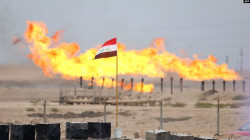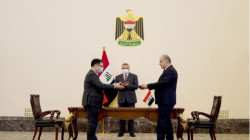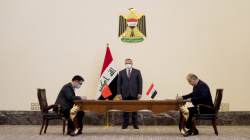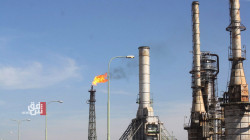How Iraq lacks communication with its largest economic partner, China?
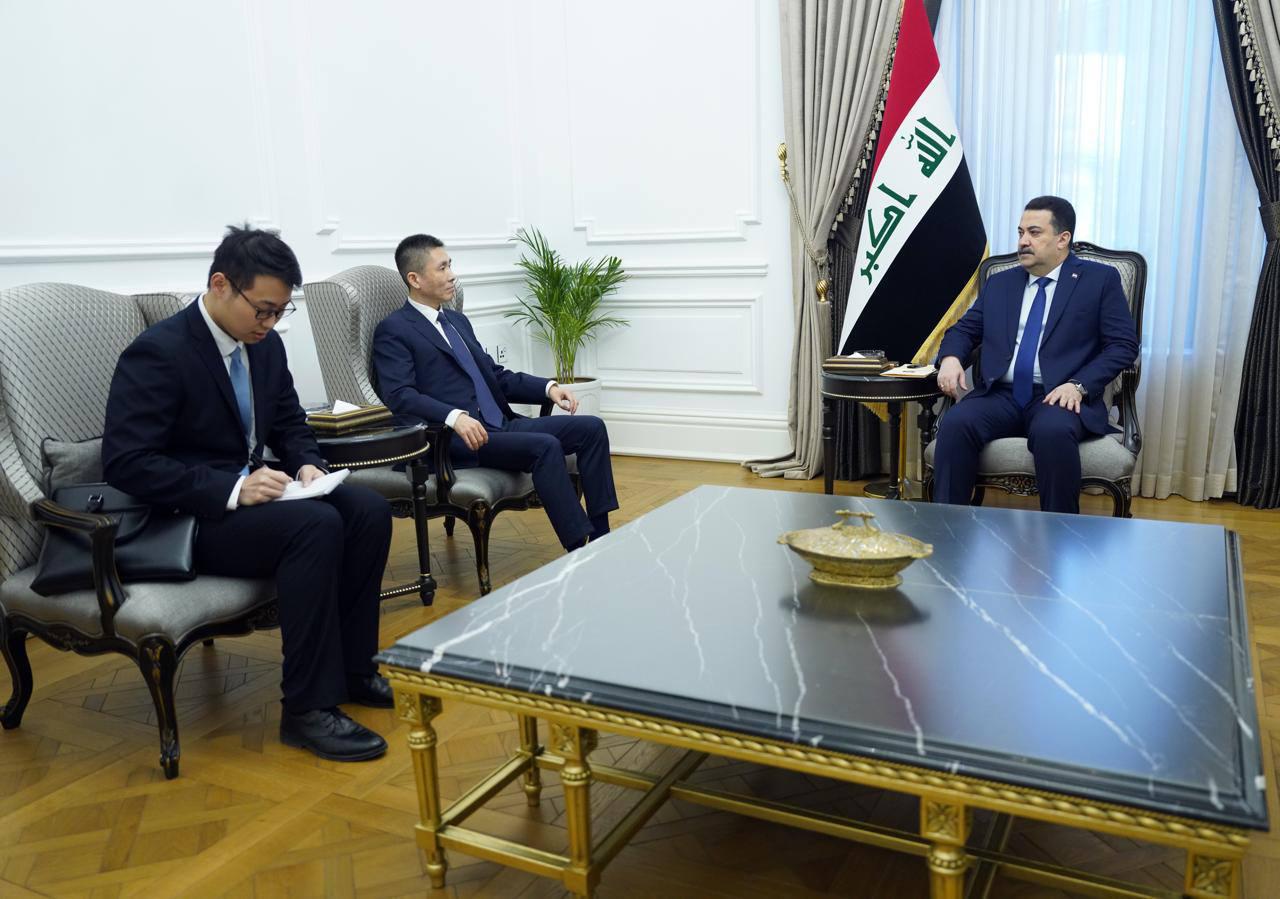
Shafaq News/ Iraq's growing economic relationship with China is facing a communication hurdle - a severe lack of qualified translators. The Iraqi Translators Syndicate says there's just one certified Chinese translator in the country, despite China being Iraq's top import partner, with annual trade exceeding $20 billion.
"For the past decade, we've been striving to equip Iraq with translators for the language of the global economy," said Farat Jamal Al-Attarbi, the only Iraqi Chinese translator affiliated with the syndicate told Shafaq News Agency.
A 2015 attempt to establish a Chinese language department at the University of Baghdad, spearheaded by the Chinese Embassy and endorsed by the translators' syndicate, was thwarted by the Ministry of Higher Education, citing a lack of qualified instructors. The absence of a dedicated program has left Iraq with a single translator to bridge the linguistic gap with its key economic partner.
"Over 1,800 Chinese companies are operating in Iraq, but only a handful are officially registered with the Iraqi government," Al-Attarbi explained. "In this regard, I have tried to develop the language aspect in diplomacy and protocols. I have submitted requests in the public interest as the Ministry of Foreign Affairs, the General Secretariat of the Council of Ministers, and the Department of Decrees all lack an Iraqi-born Chinese translator. Instead, English is relied upon for cooperation with the Chinese side."
Driven by a desire to serve the public interest, Al-Attarbi said he has also explored the establishment of a Chinese language institute and collaboration with ministerial media offices to nominate a group of employees for language training. The long-term plan included subsequent expansion through short courses and study trips to China. However, "these efforts have also proven unsuccessful".
China Translates To Itself
"Engaging with the Chinese side through an Iraqi translator is crucial for political, social, economic protocols, and labor market support," Al-Attarbi explained. "For instance, Chinese companies PetroChina and Sinochem, operating in Iraq's oil fields, rely on Chinese personnel as translators."
He added that language proficiency is crucial to facilitate trade and economic agreements, particularly the government's international initiative, the Development Road.
"The Development Road project, involving multiple ministries and agencies, necessitates a deep understanding of the agreements, which in turn requires the presence of an Iraqi Chinese translator," Al-Attarbi elaborated.
"The Kurdistan Region has grasped the significance of having an Iraqi Chinese translator and has begun establishing a robust economic foundation to attract Chinese companies," Al-Attarbi noted.
Iraq's Translator Syndicate
The Iraqi Translators Syndicate (ITS) acknowledges the scarcity of Chinese translators in the country, with only one certified translator currently affiliated with the organization.
"At the moment, the ITS has a single authorized and licensed Iraqi Chinese translator who handles the majority of Chinese translation requests received by the syndicate," Qasim Al-Asadi, President of the ITS, told Shafaq News Agency.
"The number of Chinese translators in the syndicate does not match the number of accredited translators we have in other languages because Chinese is not taught in Iraqi universities," Al-Asadi explained.
Despite the shortage, "the Iraqi government or any government agency has never before or after requested us to provide a Chinese translator for any official government event," Al-Asadi clarified. "However, during the recent visit of Turkish President Recep Tayyip Erdogan to Iraq, the government requested translators from the College of Languages at the University of Baghdad. In case we are asked to provide a Chinese translator, we will offer our accredited translator."
"We regularly announce the opening of Chinese language courses, and there are people who express interest in learning this language," Al-Asadi said. "But the number of those interested is not enough to start a course, as they are usually just a handful, not even reaching the minimum of 10 people required to start any language course."
"This number is negligible compared to similar courses in other languages like English and French, which have hundreds of students," Al-Asadi explained.
"I have met with many diplomatic missions during my time at the ministry and its embassies, and the Chinese and Russian missions particularly stand out," a source in the Iraqi Foreign Ministry told Shafaq News Agency, noting that Chinese diplomats often speak Arabic, eliminating the need for translators.
"The Chinese used to send us diplomatic and administrative staff who spoke Arabic, and meetings with them were conducted without an interpreter," the source explained. "The staff accompanying the Chinese ambassador all speak Arabic. Interestingly, you'll find that they change their names to more familiar ones like Ibrahim or Malik for ease of communication. This is something that is lacking on the Iraqi side."
The source, however, acknowledged the need for qualified Iraqi Chinese translators and their scarcity.
"In the Ministry of Foreign Affairs, we have two or three employees who speak basic Chinese, having been stationed in China for a period and learned the language. However, as I mentioned, they only know colloquial Chinese."
The source underscored the need for a larger pool of competent translators to match the growing ties between Iraq and China.
"The extensive openness, economic cooperation, and diplomatic representation between Iraq and China necessitate having a number of translators commensurate with this level of cooperation," the source stated. "For instance, there are certainly more Chinese speakers in the world than there are speakers of Spanish, Russian, or German," the source pointed out. "Unfortunately, there has been a neglect in producing a sufficient number of official Iraqi-born Chinese translators, not those who speak superficially or only street Arabic."
Drawing a parallel with Russian diplomatic practices, the source highlighted their emphasis on Arabic language proficiency.
"The Russian staff in Baghdad and all their missions in Iraq speak Arabic," the source said. "This includes British and Japanese ambassadors, and other accredited ambassadors, who recognize that this is essential for achieving their mission objectives."
"One Russian diplomat, for example, explained that their missions do not accept non-nationals as interpreters for their language in any meetings held anywhere in the world, for certain reasons, including the need to be fully informed about and in control of such meetings," the source explained.
"Russia has a department in its foreign ministry that studies all the languages of the world," the source noted. "This includes their experience in learning the language of a tribe in Algeria, in anticipation of having a diplomatic representative there one day."
"Having official Iraqi-born translators in the Ministry of Foreign Affairs is crucial for both the political and economic aspects," the source stressed. "It is important to have sworn, specialized, and academically qualified translators who know the rules of the language, not just street Arabic. We should also consider local languages in all countries and not rely solely on English or other major languages."
The source underscored the irony of the situation with China.
"The paradox lies in this openness to a country like China, yet we do not have Iraqi-born translators, or if we do, their numbers are very limited, while joint cooperation between the two sides is reaching its peak," the source concluded.
The Ministry of Higher Education
Sources in the Iraqi Ministry of Higher Education and Scientific Research said it is working on opening a Chinese language department at the College of Languages at Baghdad University. The move comes as part of the ministry's efforts to strengthen academic and cultural ties between Iraq and China.
The decision was made following a meeting between Baghdad University President Dr. Baha Ibrahim Insaf and Chinese Deputy Ambassador to Baghdad Xi Weifeng on May 28, in the presence of Dean of the College of Languages Ali Adnan.
During the meeting, the two sides discussed ways to enhance scientific and cultural cooperation between Baghdad University and Chinese universities, as well as the possibility of establishing joint research projects between universities in the two countries.
"The university is keen to strengthen its relations with Chinese universities," said Dr. Insaf. "We also urge Chinese students to take advantage of the 'Study in Iraq' program launched by the Ministry of Higher Education and Scientific Research."
Iraq exports nearly half of its oil production to China, making the Asian nation a key trading partner for the Middle Eastern country. According to economic expert Mustafa Hantoush, this relationship is expected to continue for the next 75 years.
"China has begun designing refineries that run on Iraqi fuel, and they have a vision for cooperation with Iraq for the next 75 years in the commercial sector," Hantoush told Shafaq News Agency.
The economic cooperation between the two countries has expanded into various fields, including the presence of the Chinese PetroChina company in Iraq, refinery companies, and Chinese companies winning 80% of the recent licensing rounds. The volume of the trade balance and Iraqi imports from China reaches $18-20 billion annually.
"Even if the Iraqi industry flourishes, a large part of the imported materials from China will continue without interruption," Hantoush added.
"The biggest relationship between Iraq and China will be through the Faw Port, which will link the East represented by China and India to the West through Turkey to European countries," he explained.
Hantoush said that the Iraqi negotiator in this aspect was weak, as he could have brought Chinese companies to invest in the project through the development path with balance with the American side by finding American operating companies, which would have created a situation different from what it is now.
"Iraq lacks specialized centers to study countries that have a great impact on Iraq, including China, the United States, and Britain, similar to other countries in the world, including Arab countries," he said. "As a result, we live in isolation despite being an exporting and importing country. These centers must include capitalist minds and competencies and abandon the idea of deterministic economics, which is summarized by the fact that China will inevitably import from Iraq and needs it. This view is wrong because each country has become alternatives and does not adhere to one country or one country."
